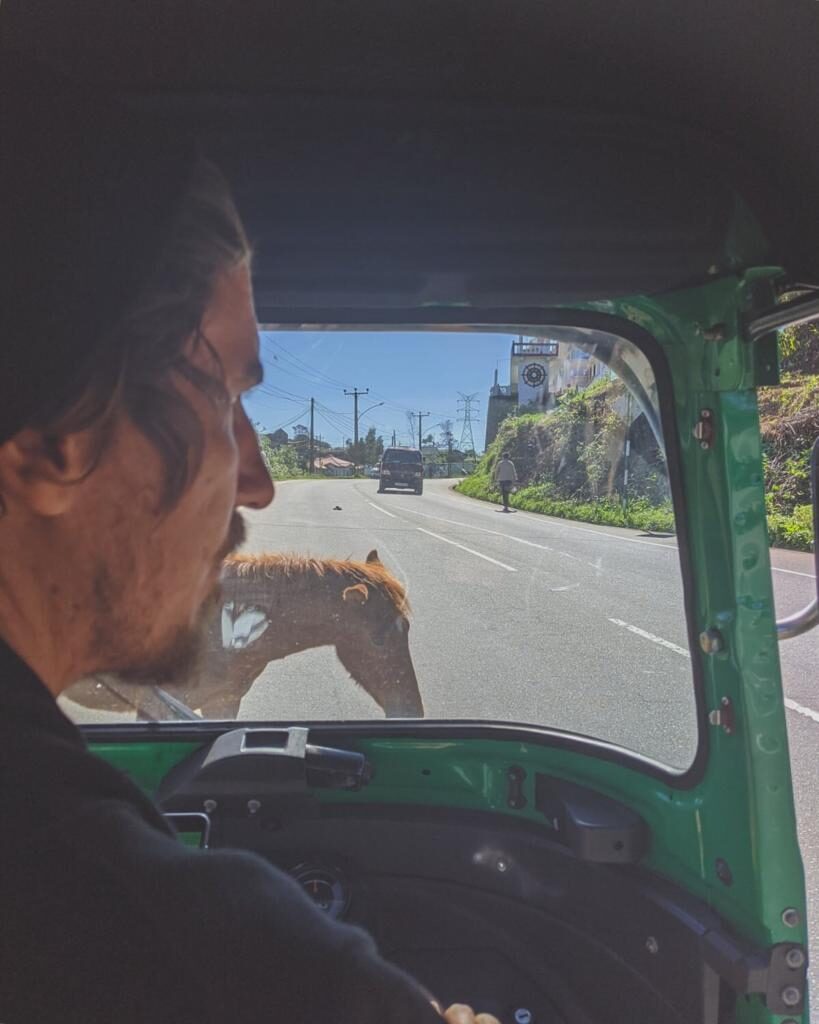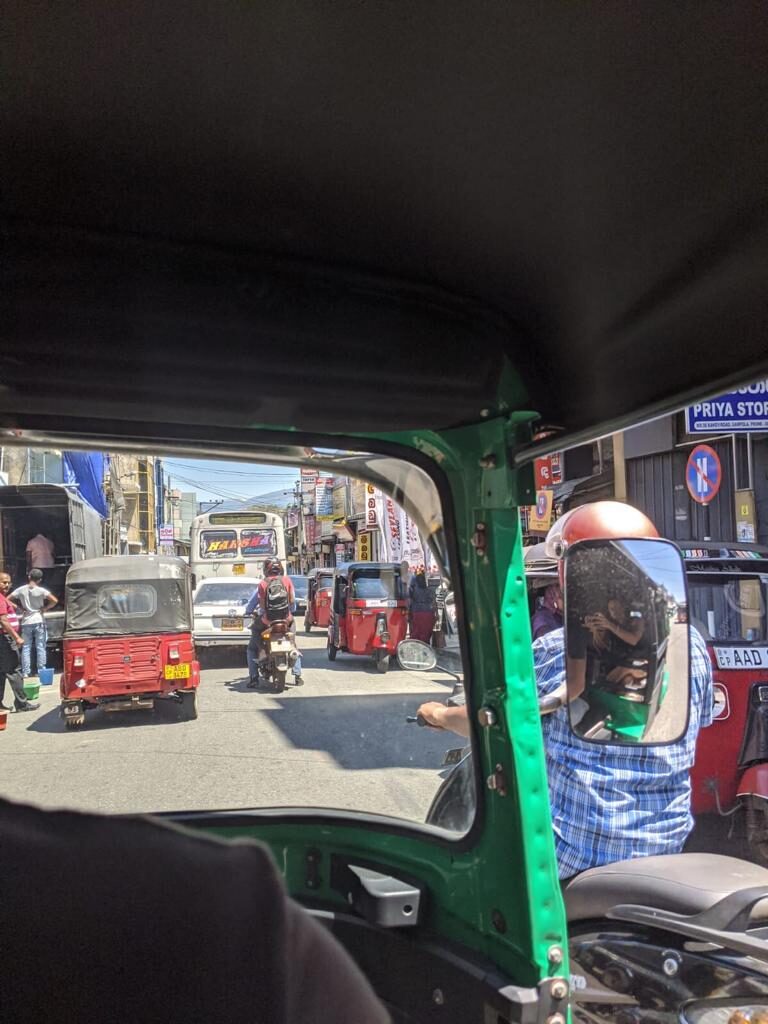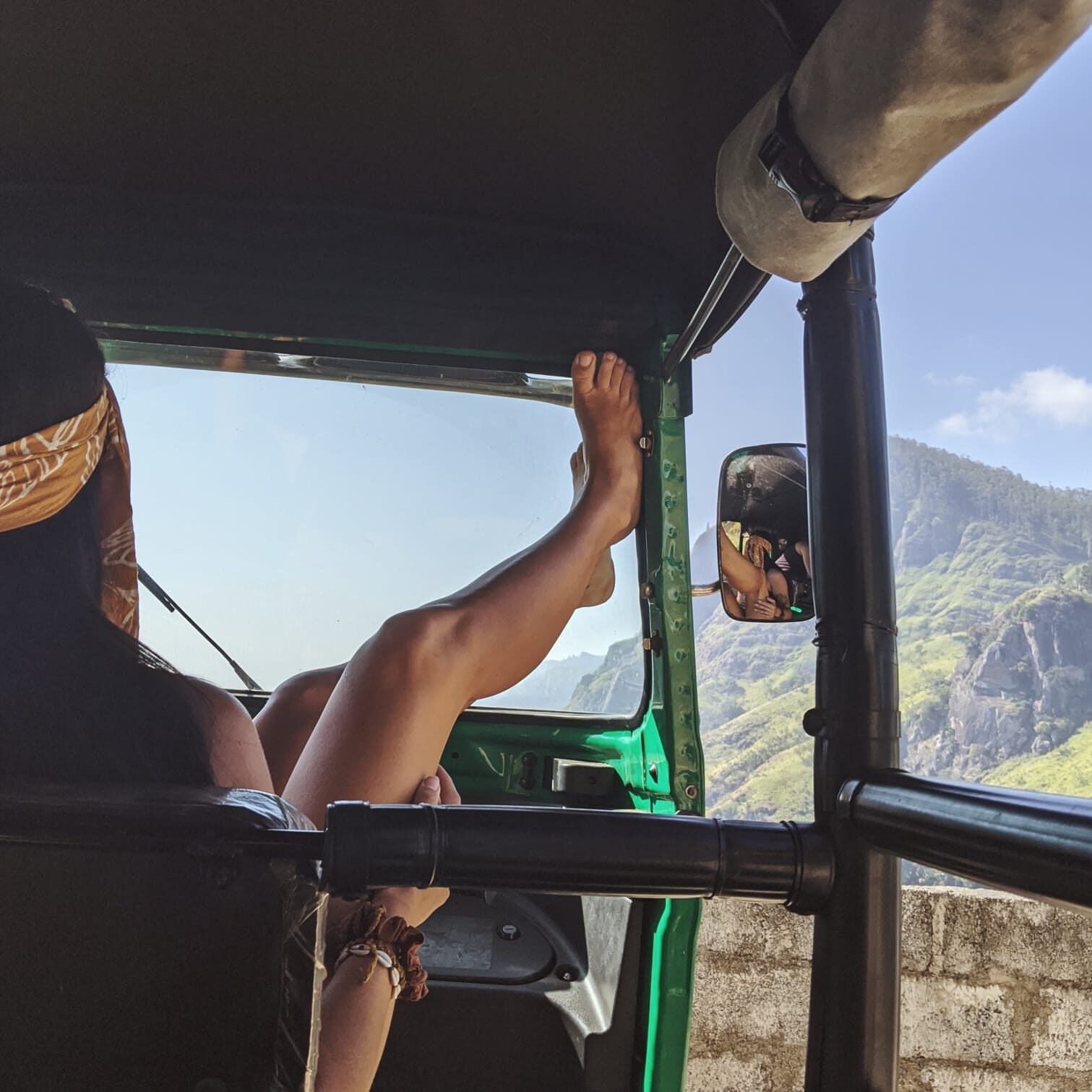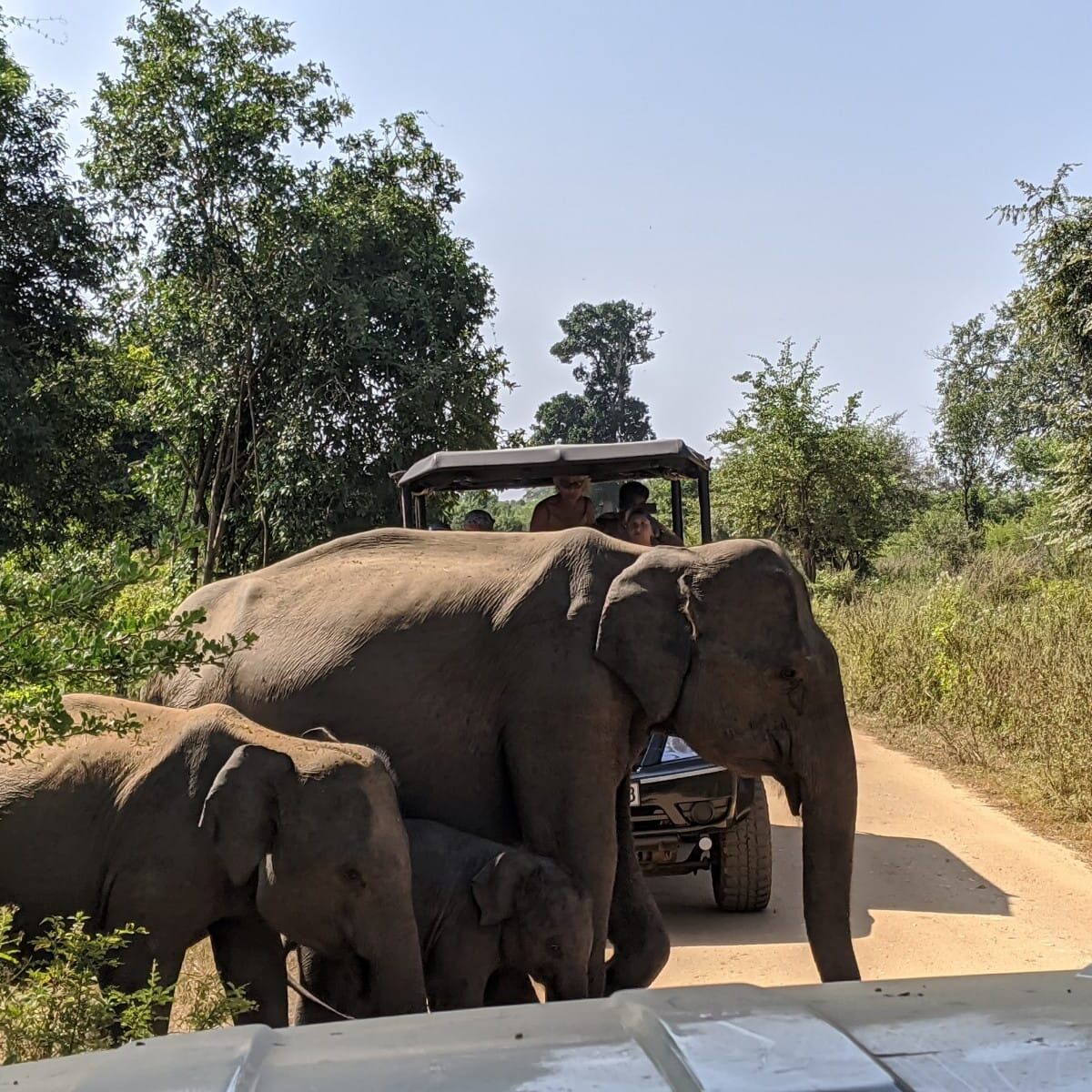As a tourist driving in Sri Lanka, you'll feel like the roads are set to expert mode.
I've driven all around the world, but there's something inherently dangerous about driving in Sri Lanka.
Whether its dodging potholes, buses, or elephants, Sri Lanka throws out the rulebook when it comes to driving.
But don't let put you off. It's entirely possible to keep safe while driving on Sri Lankan roads, you just need to know how things work.
So, if you're planning on driving a tuktuk, motorbike or car, these tips are absolutely necessary to stay safe on Sri Lanka's crazy roads.
Read about our Sri Lankan tuktuk trip here and get a discount on your own tuktuk adventure.
1. The size of your vehicle determines your road-rank
While I hate to say it, if you're driving a tuktuk or motorbike in Sri Lanka you're the most vulnerable.
This is because in Sri Lanka the size of your vehicle determines your power on the road.
You need to be especially careful riding motorbikes, as you'll need to dodge every other vehicle on the road.
2. Get out of buses way
Sri Lankan bus drivers are the craziest people on the planet.
They won't stop for anyone, they'll overtake on tight bends, hell, they'll do whatever they can to save a minute of time.
Sri Lankan bus drivers are the most dangerous and shocking aspect of driving in Sri Lanka in my opinion.
3. Don't drive at night
Sri Lankan roads can be fast and chaotic in broad daylight. At night, the statistical risks of an accident occurring increases. This is because:
- Police are less active at night
- More drunk drivers
- Less heavy traffic means easier to speed
- Limited vision, especially to see motorbikers
I drove at night once in Sri Lanka - note once. I don't recommend it.
Best to plan your travels in the daylight.
4. Keep an eye out for animals
Sri Lanka has some of the most incredible wildlife in the world.
And that wildlife often finds its way onto the roads.
Whether its dogs, deers, or elephants, stay conscious of wandering animals.
5. Foreigners often targeted by police
It's not uncommon for police to stop foreigners on Sri Lankan roads.
This is not always a bad thing, as police as sometimes just curious and want to say hello or take a photo.
Three reasons police stop foreigners in Sri Lanka:
- You're breaking the law/routine check (no helmet etc.)
- Friendly curiosity
- Corrupt police trying to scam you into paying them
6. Random road-blocks common
Roads are often closed without warning or adequate signage, which can be hazardous in some situations.
In Sri Lanka, it's always best to expect the unexpected because you never know what lies around each bend.
7. Don't stop at pedestrian (zebra) crossings
While it may go against everything you learned as a driver, stopping at pedestrian crossings can be extremely dangerous in Sri Lanka.
If you're to stop at a crossing, traffic behind you won't expect it and could end up rear-ending you. This is especially dangerous if you have large vehicles behind you.
Remember, everyone is looking out for themselves on Sri Lankan roads, including pedestrians, who aren't expecting you to stop.
8. Honking often means "move!"
Honking on Sri Lankan roads isn't an act of aggression, as often the case in the West.
In fact, honking can mean a lot of different things on Sri Lankan roads. However, I've found the most common meaning is to warn other drivers of an approaching vehicle.
As a rule of thumb, translate honks to "Watch out, I'm coming through."
9. Don't ride a motorbike without a helmet
Wearing a helmet is one law that is strictly enforced on Sri Lankan roads.
You won't make it by a police officer without one, so you'll need a helmet at all times.
Side-note: Don't leave your helmet on your motorbike. Helmet theft is rampant in Sri Lanka.
10. You're not safe in your lane
In Sri Lanka cars and buses will overtake even if there is oncoming traffic with the assumption the oncoming traffic will serve off the road to avoid hitting them.
Yes, that's right. If it's a bigger vehicle, you'll be expected to dodge them by swerving out of the lane simply because you're driving a smaller vehicle - even though they're driving the wrong way down your lane.
The first time this happens it's terrifying and instincts take over. The key is expecting it and always looking ahead for potential overtakers.
11. Make sure your insurance covers road accidents
Unfortunately, due to the risks, some travel insurance doesn't cover motorbike or road accidents in Sri Lanka.
Double-check with your insurance company they'll cover you.
If you don't have travel insurance, consider World Nomads, who I recommend highly as the best travel insurance for adventurous travelers.







